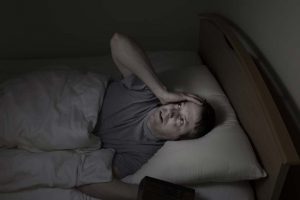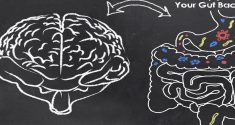As more and more scientists turn to chronobiology to help explain the mysteries of the human body, an increasing number of links between disordered sleep and disordered health are being discovered.
However, sleep may not just be important to your physical health, but important to your emotional health as well. A new study has established a firm link between lack of emotional control and insomnia.
Emotional Control and Insomnia

Initially, the researchers found no link between emotional control and sleep. However, a connection became clear over time. When re-interviewed months and years later, the people who reported a lack of emotional control were more likely to have developed insomnia or had insomnia reoccur than people with high levels of emotional control.
People who had suffered a loss of emotional control over the duration of the study were also more likely to have developed recurrent and persistent insomnia. Altogether, people with low emotional control have an 11 percent higher risk of not getting adequate sleep.
Emotions and Insomnia: The Chicken or the Egg?
While this research has demonstrated a link between emotional control and circadian rhythm, more research will be needed to determine if one of these factors causes the other. They even could be linked because of a third and currently unknown factor.
Insomnia and emotional distress have both been found to be caused by hyperarousal of the central nervous system. However, disturbances of the circadian rhythm can affect one’s emotions and vice versa. The way that these two factors interact with and worsen each other can make them very difficult to treat.
Sleep and Emotions
Regardless of the cause of one’s emotional distress, many studies have shown that getting better sleep can help psychological health. Sleep makes people more likely to have a positive mood, which is why many circadian biology researchers call it “overnight therapy.” We process negative emotions in our sleep, a crucial process that people with insomnia or other sleep disorders are lacking. People who are sleep deprived are more likely to feel intense negative emotions, which may contribute to a lack of emotional control in daily life.
The Challenge of Falling Asleep While Anxious

While researchers still have not identified most of the biochemical mechanisms by which sleep and emotions interact, the link is clear. Getting quality sleep is essential to emotional health, and finding ways to deal with emotions is essential to quality sleep.







